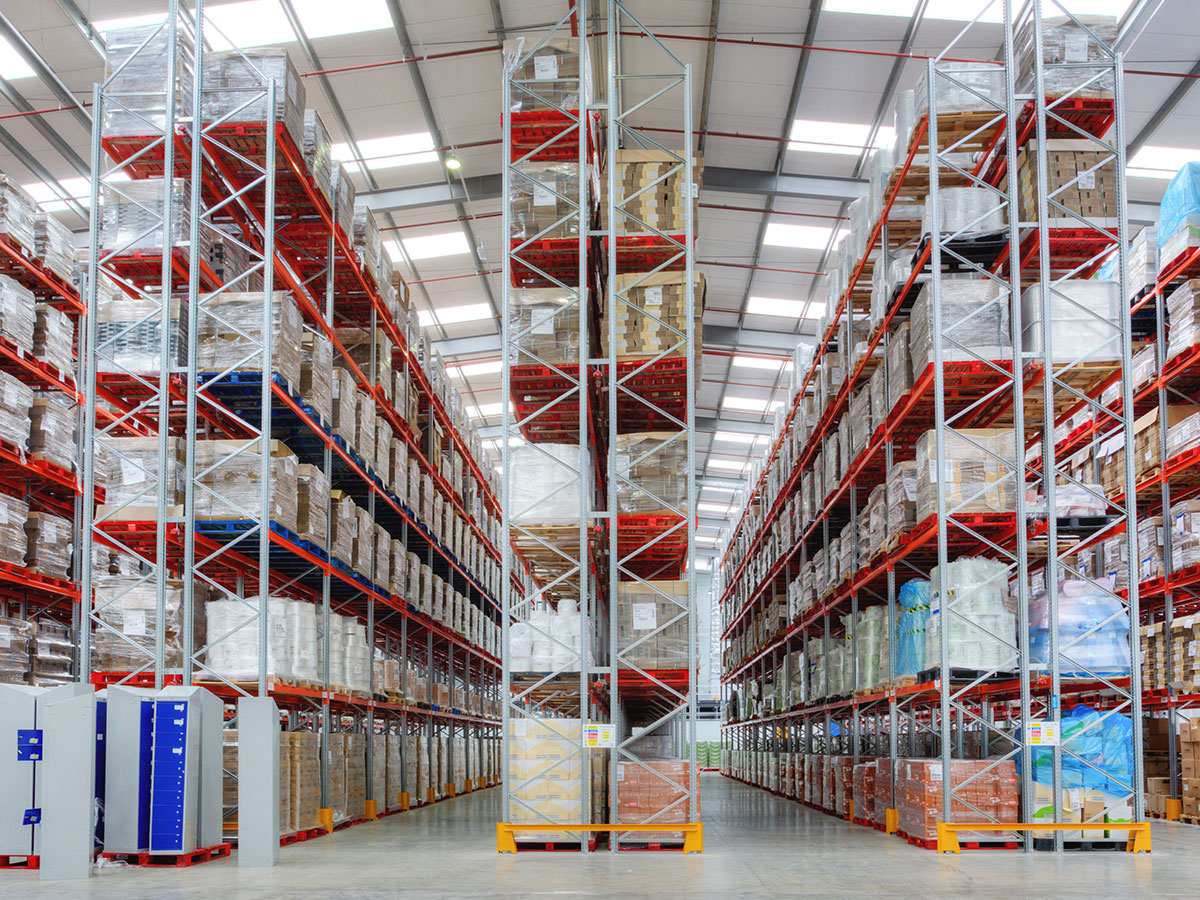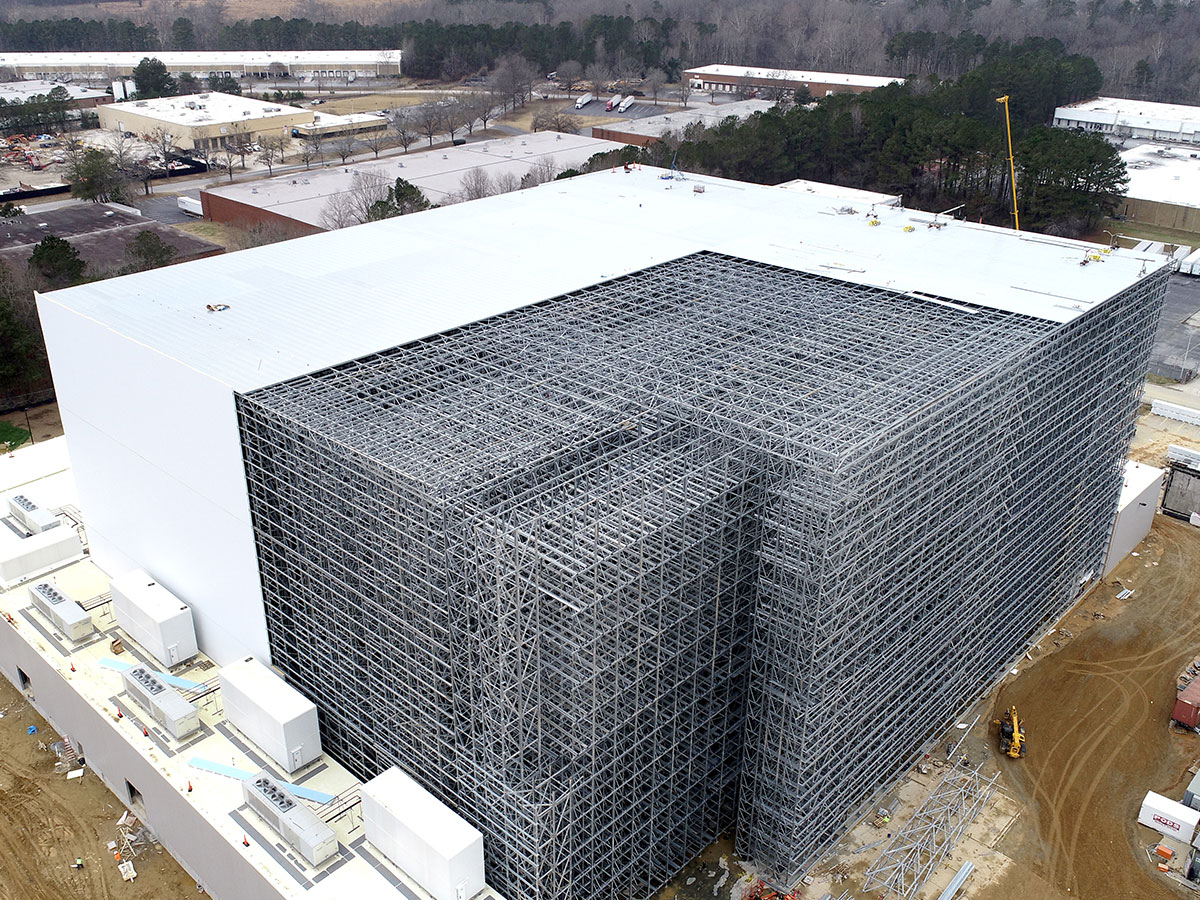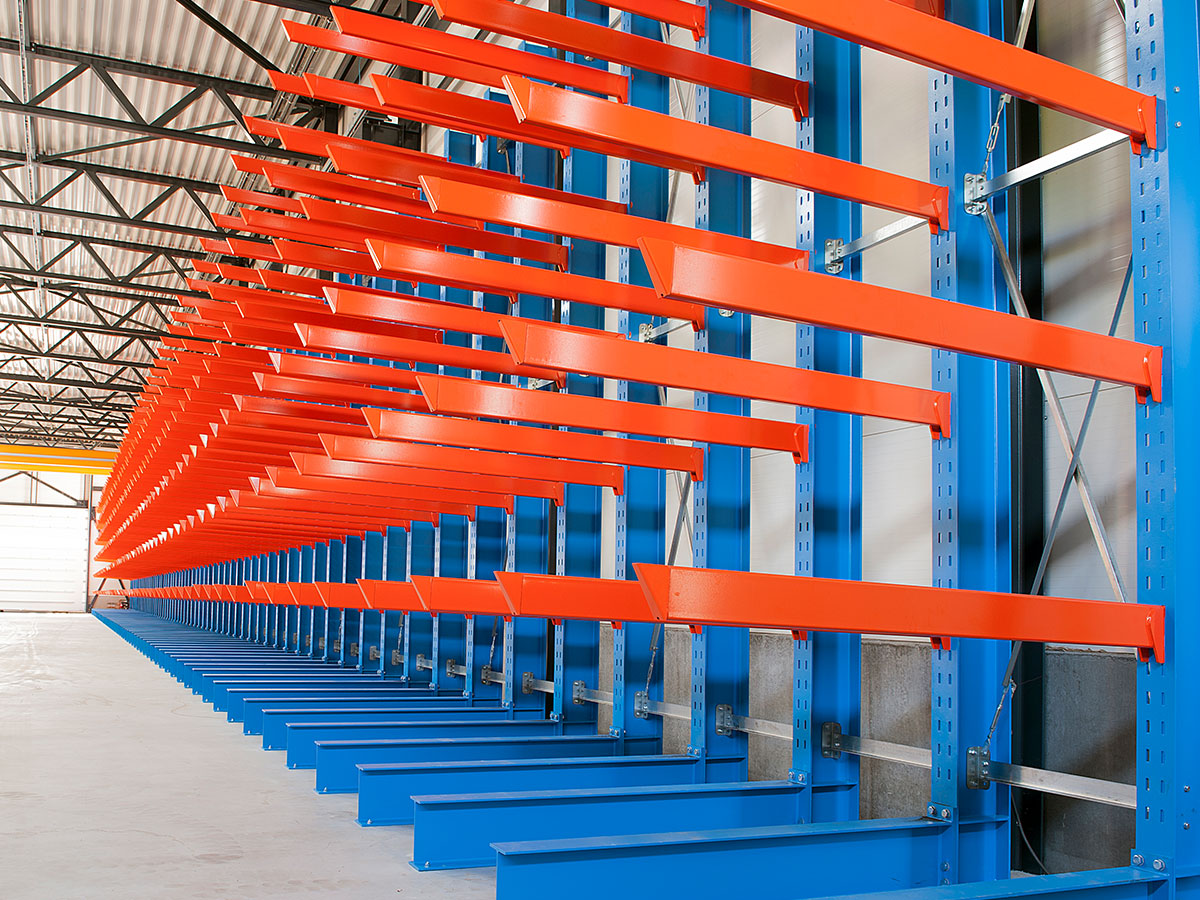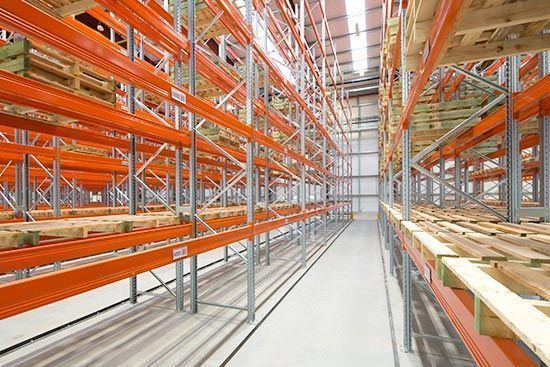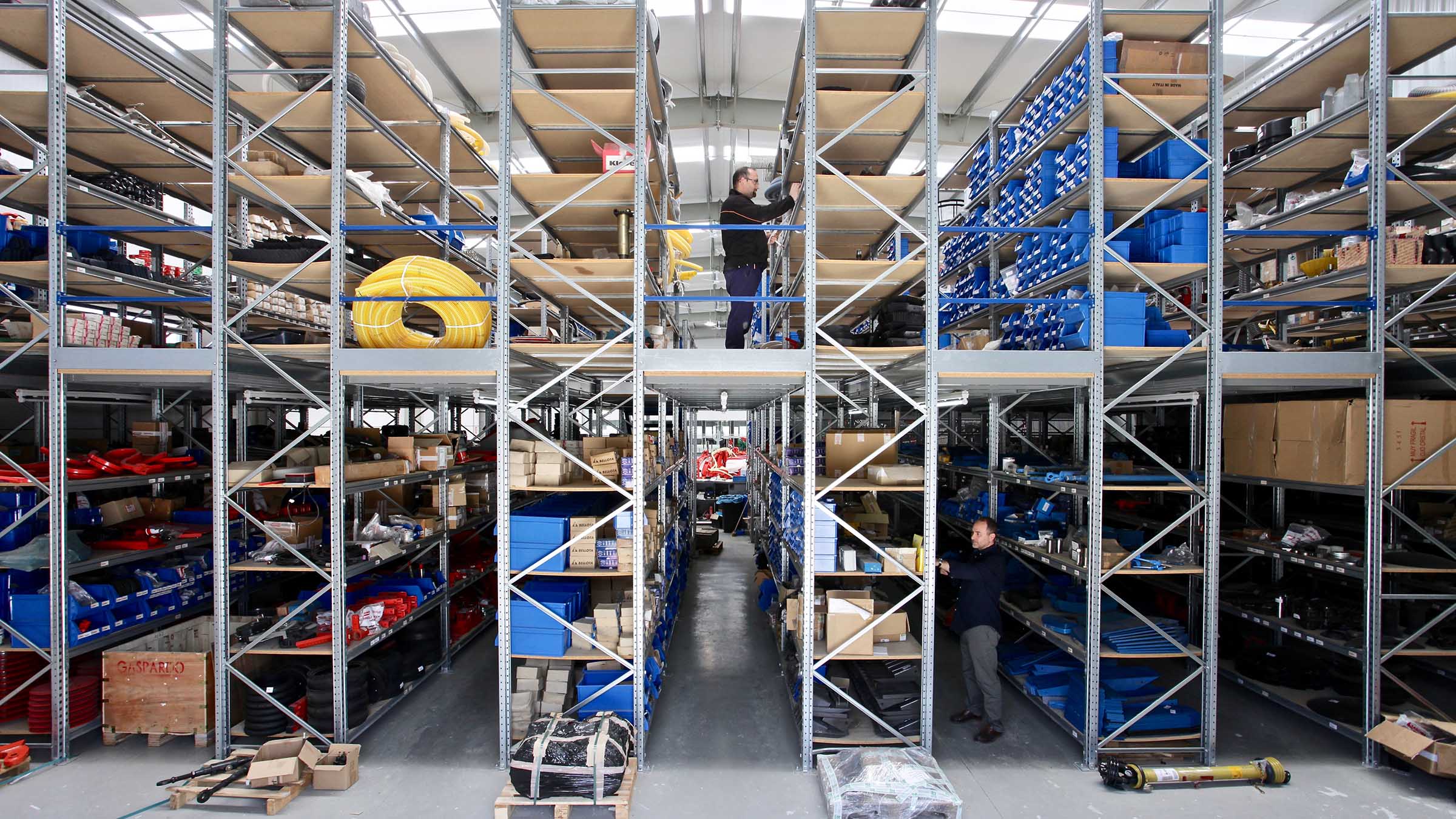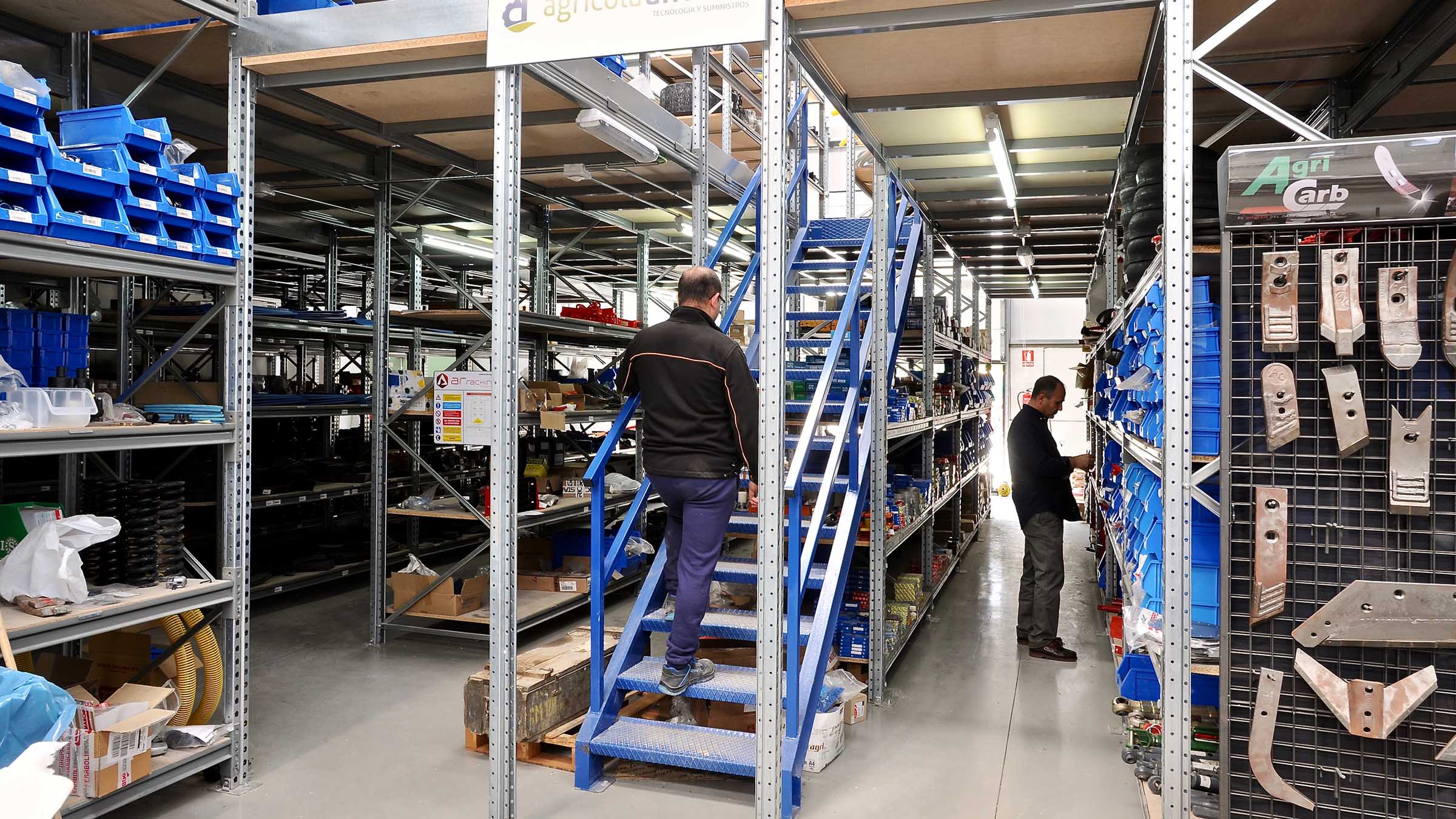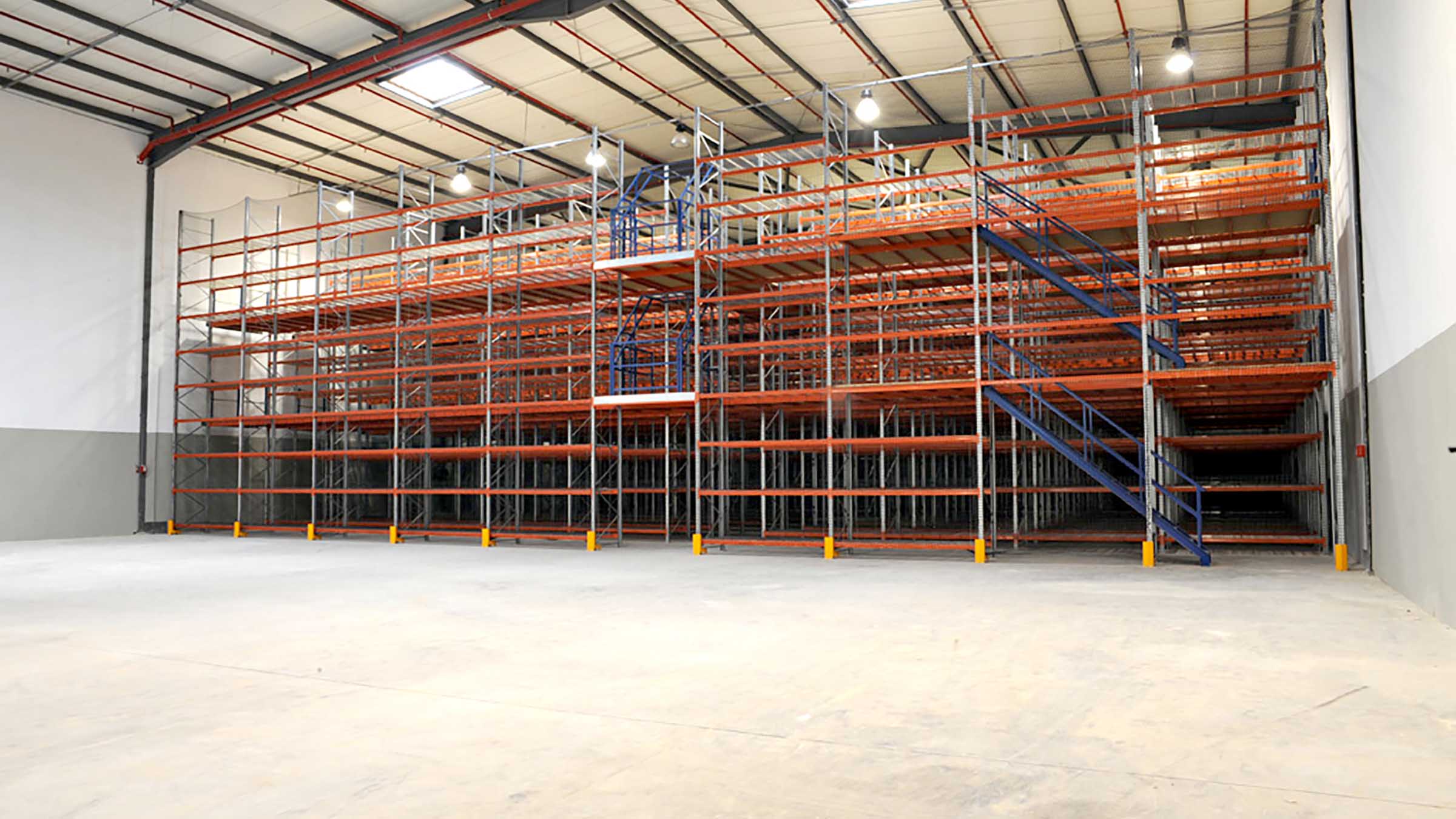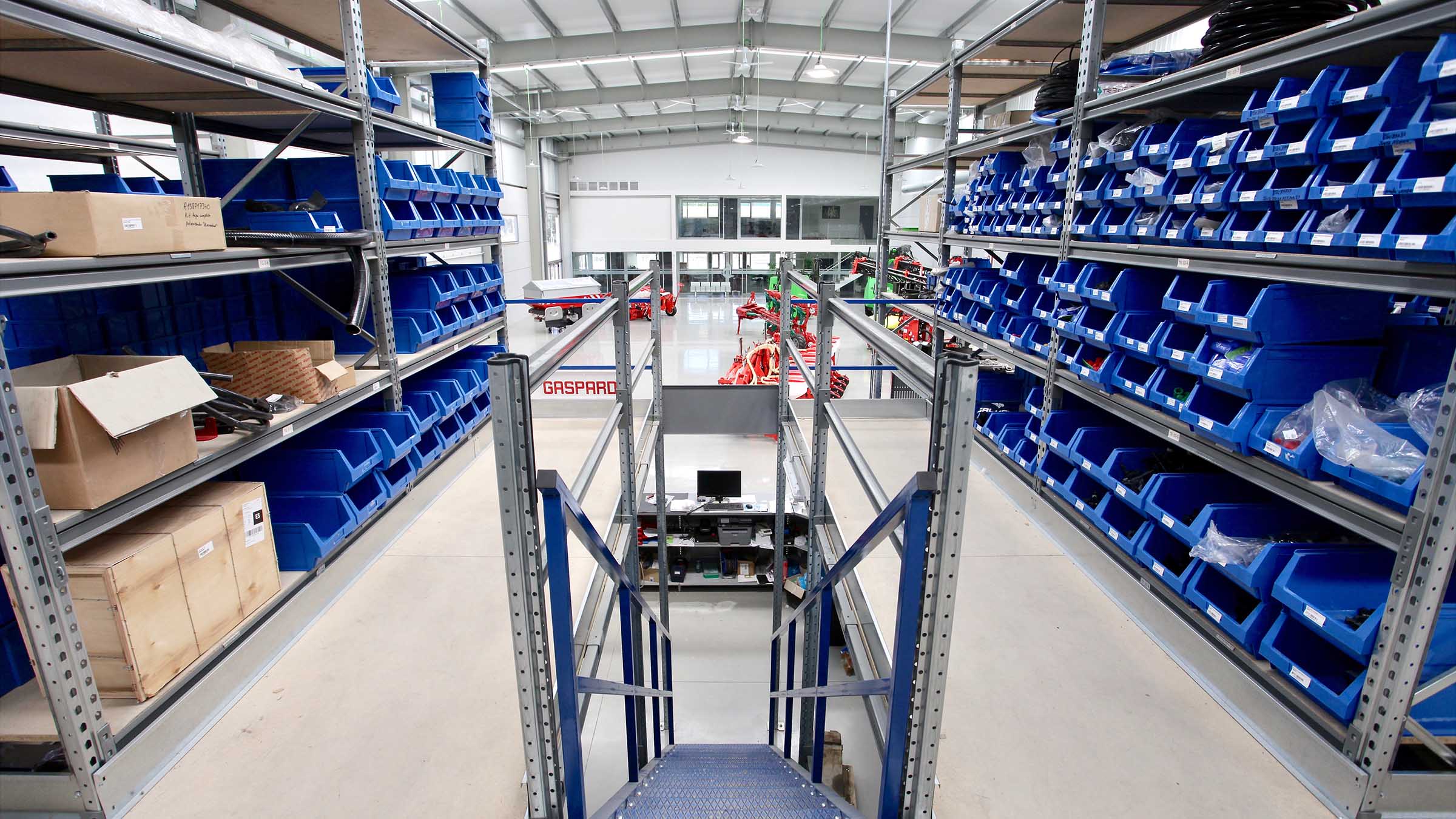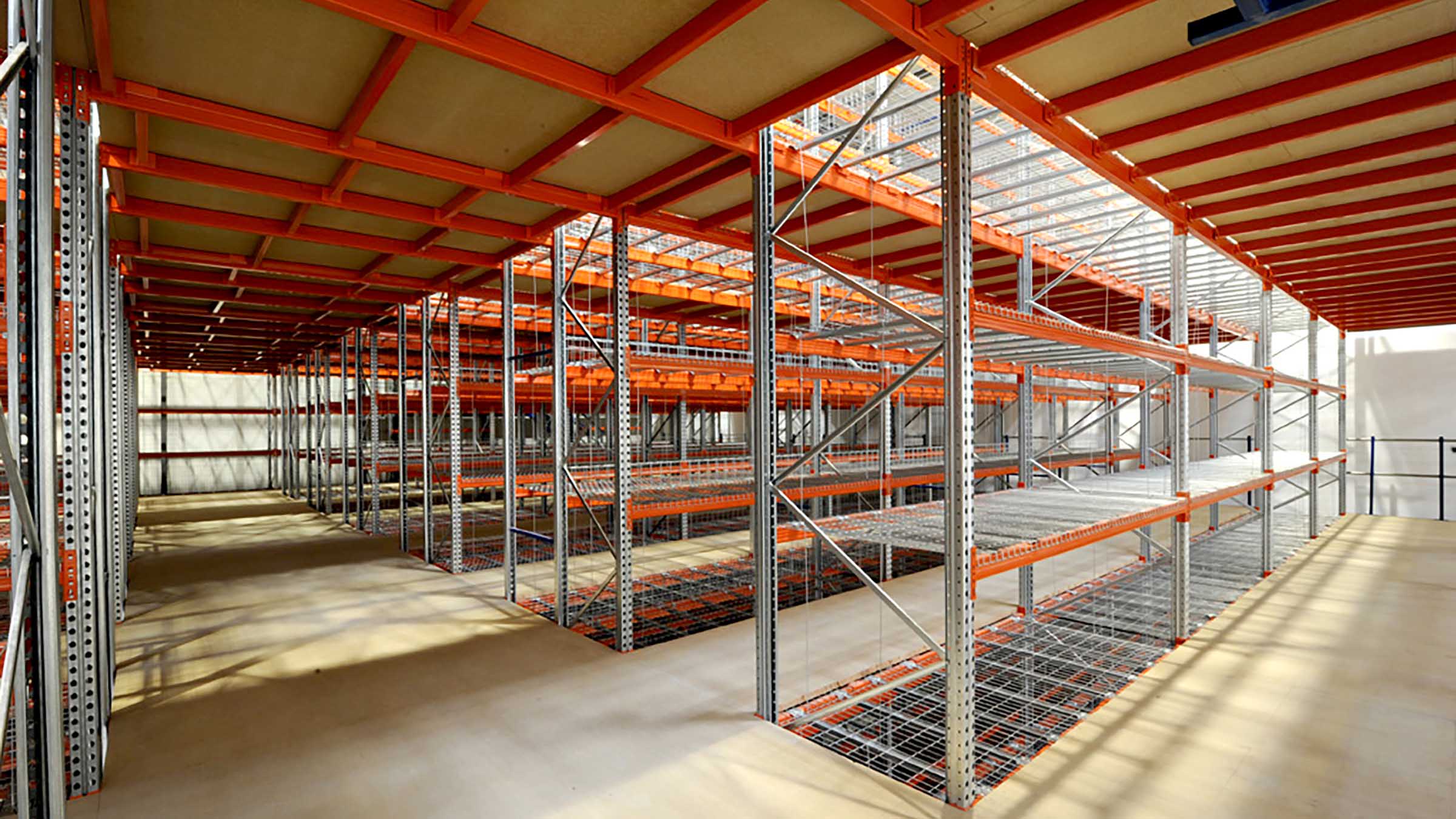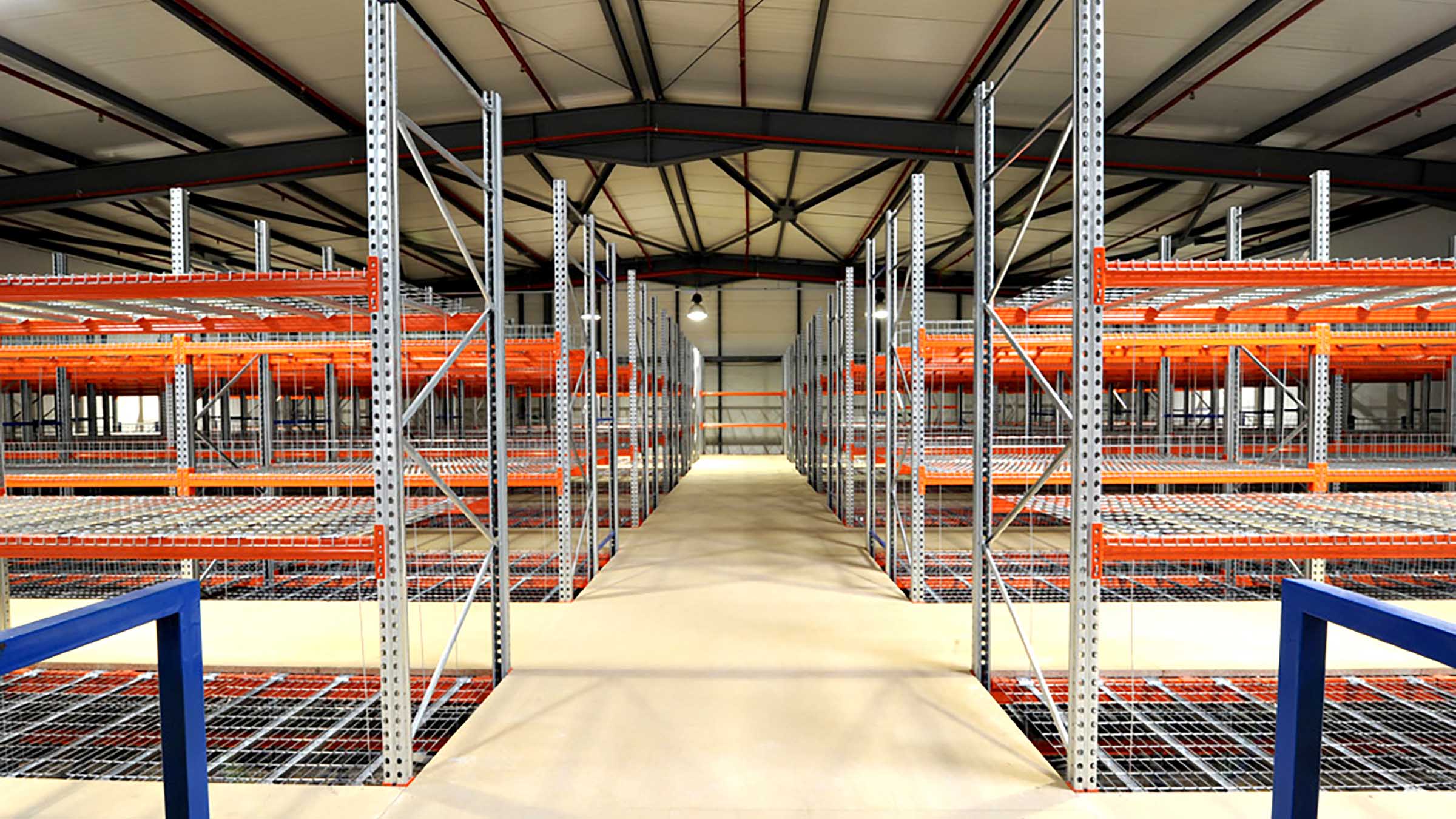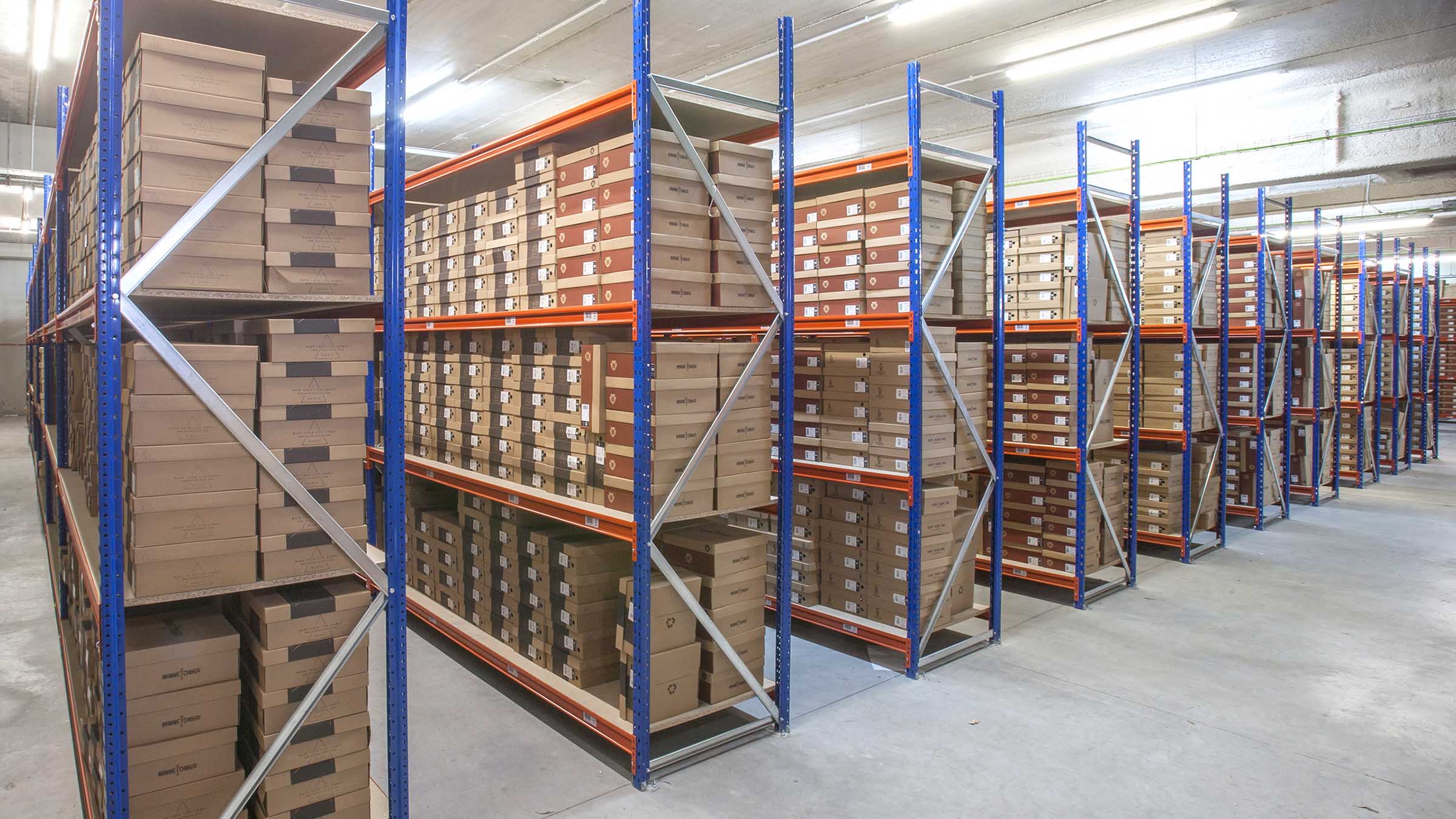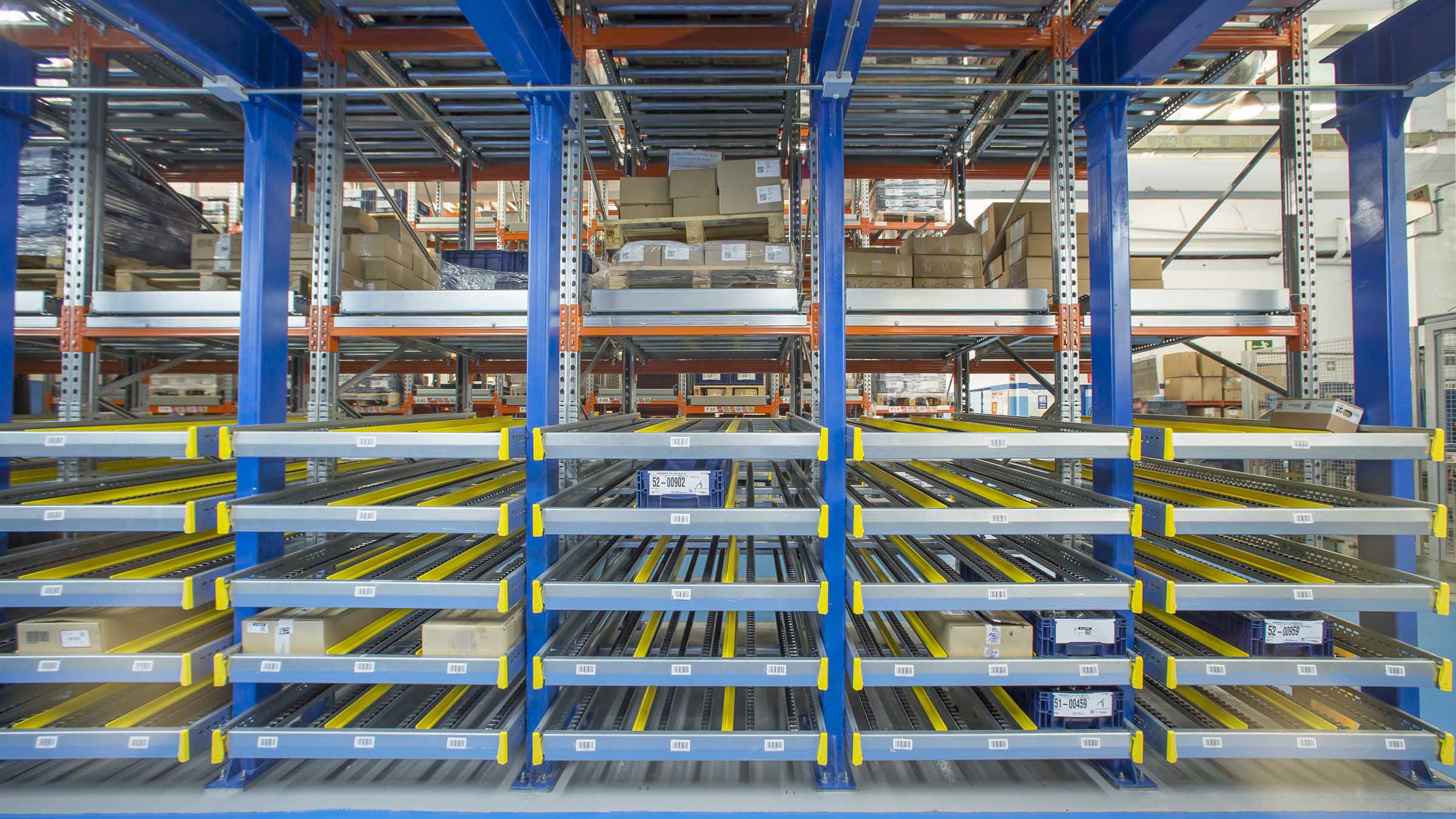Multi-tier Shelving
Designed for warehouses with limited surface area, but with the possibility of growth in height, the so-called Multi-tier Shelving (AR Multi-Tier) is a manual storage solution that optimises height space, doubling or sometimes even tripling the warehouse space.
Multi-tier shelving provides excellent use of height through the creation of different levels of aisles, for manual loading, at various heights that are accessed via stairs.
It is an ideal solution to make the most of warehouse height and improve order preparation efficiency without the need to automate this operation.
This type of storage solution allows operators to directly and immediately access upper levels of the racking and handle the load manually. Different levels of aisles are created at various heights that the workers access via stairs, or automated mechanisms such as forklifts for raising and lowering the goods.
The available space is increased, making it an optimum solution to obtain maximum performance from these facilities.




The multi-tier storage system is an essential solution in situations in which there is no more horizontal space available or if it is limited.
It is a system that can be adapted to any type of warehouse, as it offers a wide variety of measurements for its custom design.
The practical operation of multi-tier shelving involves careful planning of the design and layout of levels, aisles and accesses to ensure efficiency and safety in storage and picking operations.
In warehouses with this type of racking, operators receive picking orders through a warehouse management system or order management software, and use stairs or forklifts, if necessary, to access the different levels of the system.
Once on the right level, they select the products from the racking and place them in containers or picking shuttles. These selected products are recorded as removed from the system inventory and are then prepared for shipment.
It is a very versatile system that adapts to all types of loads and warehouses. The main advantages of multi-tier shelving are as follows:
- Maximum use of height space, with the possibility of doubling and even tripling warehouse space without having to change warehouse or location, exploiting and optimising your current facilities.
- It allows you to store medium and/or bulky loads, making the most of the height and surface area of the warehouse.
- Allows direct and immediate access to all unit loads.
- Possibility of carrying out ABC inventory management on each floor.
- Great versatility as it adapts to any type of warehouse and any type of goods.
- Agile and efficient order preparation.
- It is a flexible system as it adapts easily to the customer’s needs.
- Multi-tier shelving is simple, safe and quick to assemble and install.
- Strong and secure racking for operators.
- Facilitates operator access to all the unit loads minimising potential risks.
- Possibility of carrying out future modifications and extensions.
This type of racking is especially useful in warehouses where space is limited but height can be exploited. It is normally installed in companies that prepare orders with small items of medium and light loads and handled with manual and individual access, so the following types of warehouses or companies would most typically use this storage solution:
- Warehouses for spare parts, industrial supplies, hardware stores, etc.
- Warehouses from the food and beverage sector such as supermarkets.
- Warehouses of companies from the pharmaceutical and cosmetics sector.
- Warehouses for document logistics, archives and bookshops.
- Warehouses for distribution of electrical material.
- Warehouses for hanging garments.
- Parcel service warehouses.
Multi-tier shelving has a series of structural components and a series of specific accessories.
Its main components are listed below:
Beams are the basic structural components of the racking. They are the horizontal pieces that connect to the uprights and act as support for trays on which the unit loads are placed.

Support bars are installed transversely on the existing beams and are mainly designed to strengthen the structure of the racking by providing additional support between the beams. This helps distribute the load more evenly and prevents the racks from deforming from the weight of the stored goods.

The frames are the main vertical components of multi-tier shelving.
These frames consist of two uprights, their corresponding diagonal braces, upright bases and fixing elements such as bolts and nuts.

It is the main component of the frame which ensures the support and stability of the structure. The uprights are placed/situated at regular intervals along the racking to keep the structure vertical and withstand the load that it supports.
The design of the uprights will depend on the load capacity that it has to support and each customer’s needs.
At AR Racking we have a wide variety of uprights with different widths and lengths to adapt to the specific needs of each racking system.

It is the structural component that is located at the base and provides support and stability to the racking.
This component is essential to ensure that the racking stays upright securely and balanced.
They are also responsible for distributing the weight and load of the racking on the floor.

The stairs provide access to higher levels to operators working in the warehouse. There are various options when it comes to positioning the stairs on the racking: in the centre, on one side, at the front of the installation or between two racking structures.

They are an automated alternative to stairs. Forklifts are the equipment used to facilitate the vertical movements of operators and the movement of products or goods between the different storage levels.
These forklifts are specifically designed to operate in warehouses with multi-tier shelving systems that have multiple storage levels.
Their main function is to speed up the product loading and unloading process from and to the different racking levels.
Multi-tier shelving systems comply with the strictest European safety standards, and also come with AR Racking’s quality and innovation guarantee.
Our confidence in multi-tier shelving systems means we are able to offer 5-year quality guarantees against all types of manufacturing or hidden defects in the main structural components.
Since 2016, all our racking components include a traceability system.
This system provides an identifying marker, which means we can know and document the origin of each component. This allows us to identify each component, its design and the raw material used for its manufacture.
The production process for all the racking is fully automated. The latest generation profiling machines with continuous cutting process and laser measurement control, welding centres, painting and packaging processes, all fully automated, are used to guarantee the highest quality standards.
The structures of the storage systems are designed in our technology centre dedicated exclusively to R&D&I activities, as well as with the advanced engineering projects development area, which allows us to respond appropriately to more demanding logistical requirements.
With the creation of our Research and Testing Laboratory, together with the University of Mondragón, our technical area continuously tests and analyses products and materials to optimise our storage systems.
Using software, it simulates, calculates and researches the efficiency of the geometries, and makes detailed calculations on the behaviour of the systems already installed in different situations.
- ISO 9001: 2008
- ISO 18001: 2004
- OSHAS 18001: 2007
- Certificado de soldadura: UNE EN ISO 3834-2: 2006
- Certificado de resistencia del galvanizado: UNE-EN ISO 14713-1
- Reacción al fuego de galvanizado: EN 13501-1: 2007
Some featured Multi-tier Racking projects:




